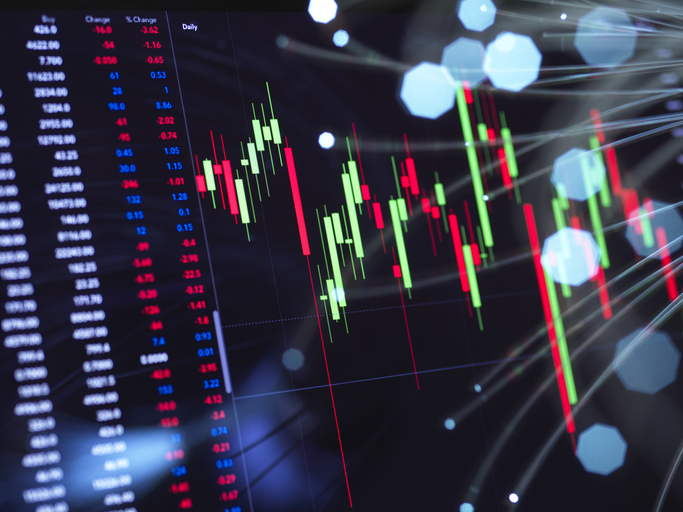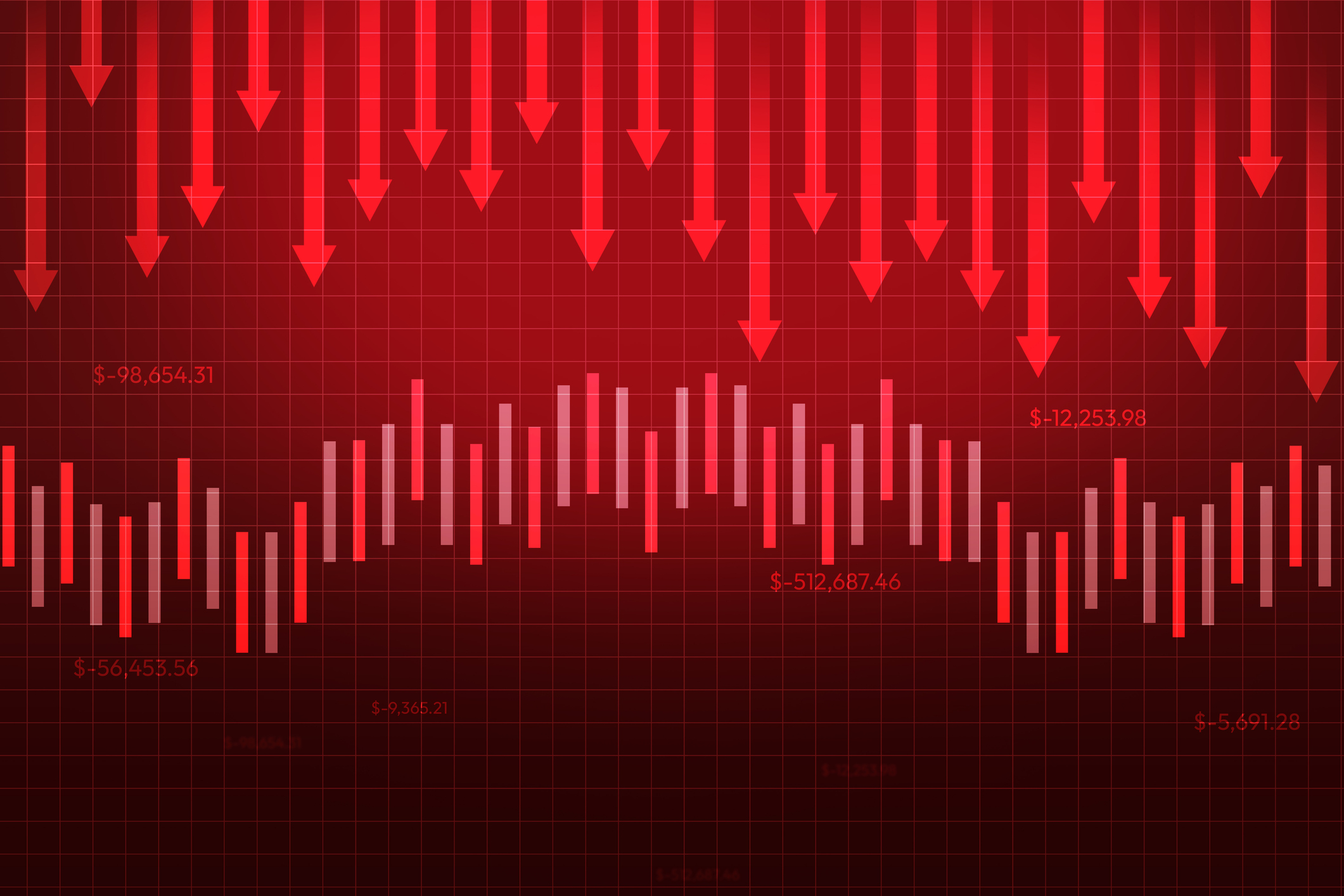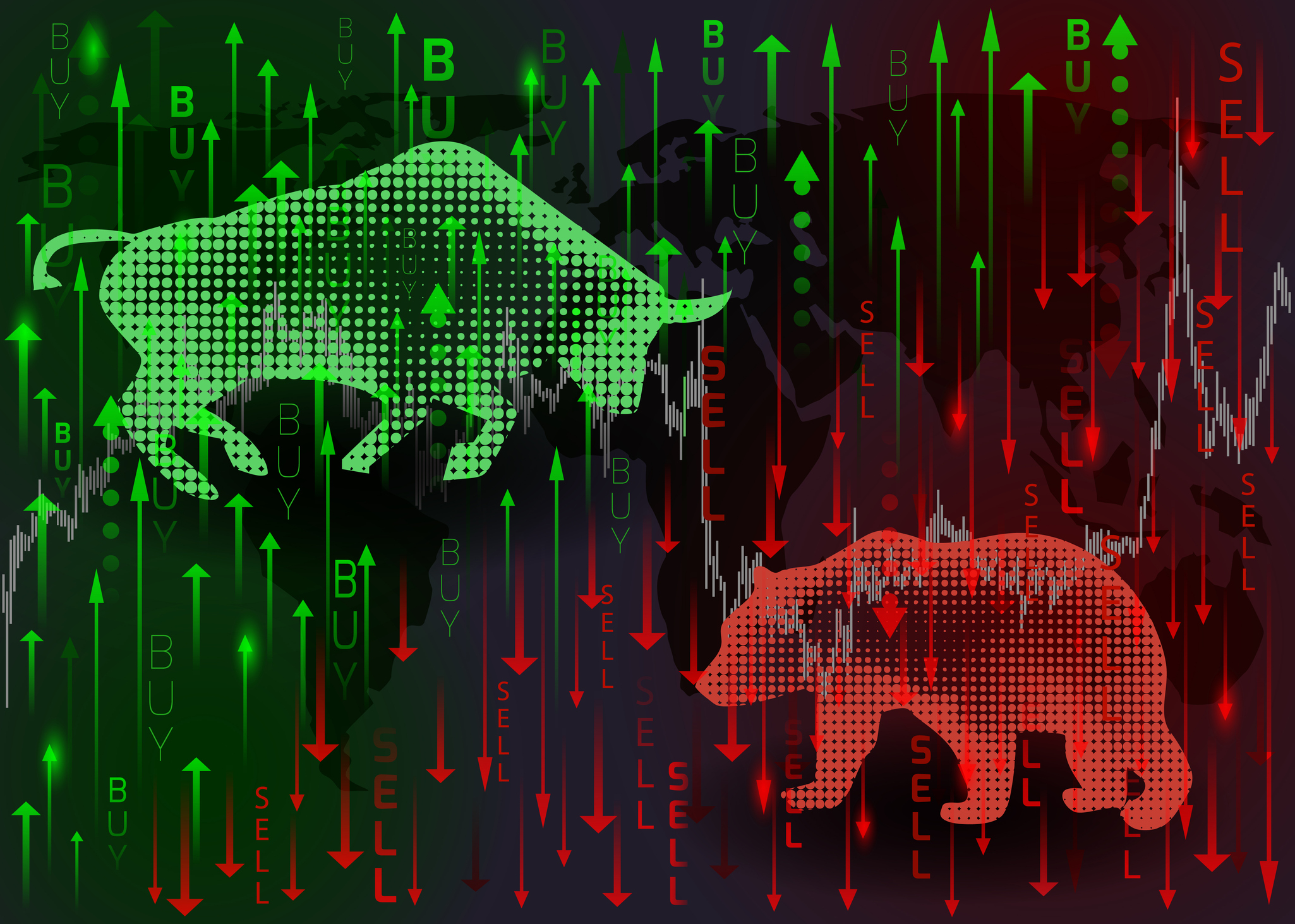8 Great Stocks for 2010
Our picks are packaged for success in any kind of market.
Profit and prosper with the best of Kiplinger's advice on investing, taxes, retirement, personal finance and much more. Delivered daily. Enter your email in the box and click Sign Me Up.
You are now subscribed
Your newsletter sign-up was successful
Want to add more newsletters?

Delivered daily
Kiplinger Today
Profit and prosper with the best of Kiplinger's advice on investing, taxes, retirement, personal finance and much more delivered daily. Smart money moves start here.

Sent five days a week
Kiplinger A Step Ahead
Get practical help to make better financial decisions in your everyday life, from spending to savings on top deals.

Delivered daily
Kiplinger Closing Bell
Get today's biggest financial and investing headlines delivered to your inbox every day the U.S. stock market is open.

Sent twice a week
Kiplinger Adviser Intel
Financial pros across the country share best practices and fresh tactics to preserve and grow your wealth.

Delivered weekly
Kiplinger Tax Tips
Trim your federal and state tax bills with practical tax-planning and tax-cutting strategies.

Sent twice a week
Kiplinger Retirement Tips
Your twice-a-week guide to planning and enjoying a financially secure and richly rewarding retirement

Sent bimonthly.
Kiplinger Adviser Angle
Insights for advisers, wealth managers and other financial professionals.

Sent twice a week
Kiplinger Investing Weekly
Your twice-a-week roundup of promising stocks, funds, companies and industries you should consider, ones you should avoid, and why.

Sent weekly for six weeks
Kiplinger Invest for Retirement
Your step-by-step six-part series on how to invest for retirement, from devising a successful strategy to exactly which investments to choose.
A doozy of a recession may be behind us, but that doesn’t mean stocks are out of the woods. Creeping inflation, high unemployment, sluggish consumer demand and still-unsettled credit markets are only a few of the concerns that remain. Just in case this recovery hits a bump or two, it’s smart to own stocks with good shock absorbers -- strong balance sheets, good cash flow and dominant positions in their markets. Generous dividends don’t hurt, either.
The following eight stocks should catch a brisk tailwind from a rising market. And even if tailwinds turn to headwinds, we think all eight will keep moving forward. (Share prices are as of the market’s close on November 6.)
UPS (UPS, $55)
It’s easy to see why the fortunes of UPS, the world’s largest package-delivery company, are closely tied to the health of the economy. Profits for 2009 were expected to come in 38% lower than for the previous year as businesses and consumers bought and shipped fewer things.
From just $107.88 $24.99 for Kiplinger Personal Finance
Become a smarter, better informed investor. Subscribe from just $107.88 $24.99, plus get up to 4 Special Issues

Sign up for Kiplinger’s Free Newsletters
Profit and prosper with the best of expert advice on investing, taxes, retirement, personal finance and more - straight to your e-mail.
Profit and prosper with the best of expert advice - straight to your e-mail.
Don’t make the mistake of waiting until the clouds clear to buy this Atlanta-based giant. UPS has a long track record of producing high returns for shareholders. It may take a while for consumer spending to ramp up, but once it does, UPS should see big gains in revenue and profit margins, and it will benefit from the departure of rival DHL from the U.S. shipping market in 2009. Analysts expect earnings to improve by 23% in 2010, to $2.68 a share, helped in part by cost-cutting and lower capital spending. The stock yields 3.3%.
Kimberly-Clark (KMB, $64)
Kimberly-Clark is the kind of company investors love in a recession. Consumers buy its Huggies diapers, Kleenex tissues and other paper and personal-care brands in any economic environment. But Kimberly-Clark should also perform better in a recovery, because customers who traded down to no-name substitutes are likely to return to brand-name products.
The company should also see better profit margins as a result of recent cost-cutting programs. Analysts expect profits to climb 13% in 2010, to $5.19 a share. The Dallas-based company’s long-term prospects also look bright, with good growth expected to come from its health-care division and from expanding sales in emerging nations. The stock trades at 12 times expected 2010 earnings -- reasonable for a low-risk investment with good growth prospects -- and yields 3.8%.
Pepsico (PEP, $62)
We like PepsiCo for much the same reason we like Kimberly-Clark: It has a large stable of powerhouse global brands that can provide years of solid growth. The Purchase, N.Y., seller of beverages and snack foods is known for its innovation in developing and marketing successful new products, making it a good way to invest in the expected growth in purchasing power of consumers in developing countries.
Pepsi’s size, financial strength (it generates about $7 billion in operating cash flow annually) and 2.9% dividend yield also make it a relatively safe growth stock. The stock’s price-earnings ratio -- 15, based on expected 2010 earnings of $4.18 per share -- looks compelling, especially given management’s expectations of 11% to 13% profit growth in the coming year.
Paychex (PAYX, $30)
Although the economic news is improving on many fronts, the unemployment rate continues to rise. No wonder shares of Paychex, which processes payrolls for more than 550,000 U.S. clients, are available at bargain levels. They trade for 21 times the past year’s earnings, compared with a five-year average of 29. It’s hard to know when unemployment will bottom out, but it’s easy to figure out that now is the time to buy shares -- while they are cheap.
Paychex is one of two firms that dominate payroll processing (Automatic Data Processing is the other). It’s a great business, in part because the Rochester, N.Y., firm earns interest on the payroll funds it holds temporarily for clients. Lately, low interest rates have crimped this part of the business. But you don’t have to wait until the jobs picture improves to profit from this stock. It yields 4.1%, and thanks to Paychex’s debt-free balance sheet and solid cash flow, the $1.24 annual dividend appears safe.
Western Union (WU, $19)
Western Union began wiring money over telegraph lines in 1871 and continues to do so today via electronic transfer. Workers around the globe use its service to send their wages back home. With 385,000 agents in 200 countries, the Englewood, Colo., company is by far the biggest player in a business in which size and reach mean a lot. Yet Western Union controls just 17% of the highly fragmented international money-transfer market.
High joblessness and pay cuts have taken a heavy toll on workers, who are sending home smaller amounts and doing so less frequently. Western Union’s revenue was expected to be down 4% in 2009, and profits were expected to be flat. Still, opportunities for growth are vast -- particularly in Asia, which accounts for just 7% of the company’s revenues. These growth opportunities and a solid balance sheet make the stock a good buy at 13 times forecasted 2010 profits of $1.41 per share. Western Union pays a tiny dividend, but it returned some $400 million in cash to investors in 2009 through share buybacks.
Sysco (SYY, $27)
Sysco provides food, equipment and supplies to more than 400,000 restaurants, schools, hospitals and hotels in the U.S. and Canada. It has a 17% share of the $215 billion U.S. food-service market, well ahead of its nearest rival. Profit margins are low, but thanks to Sysco’s size and strict cost controls, the Houston-based company earns good returns on its invested capital (about 20% annually).
Restaurants make up about 60% of Sysco’s business, so growth will be hard to come by until consumers begin spending freely again. Analysts expect earnings to rise by 4%, to $1.84 per share, for the fiscal year that ends this June. The stock trades at 15 times that figure. A 96-cents-per-share dividend rewards investors for their patience with a 3.6% yield.
Chevron (CVX, $78)
Oil prices have nearly doubled since hitting bottom when the global economy began unraveling in late 2008. They will probably go higher still as more consumers in emerging nations begin indulging a thirst for cars, air conditioners and other energy-hungry products. There are many ways to profit from this trend.
We like Chevron, the second-largest U.S. energy company, because of its strong portfolio of new oil and gas projects, its financial strength and its 3.5% dividend yield. The San Ramon, Cal., giant has $40 billion in exploration-and-production projects in progress around the globe. Many of these have recently come on line or are about to come on line. Production in the third quarter of 2009 was 11% ahead of the same period a year earlier, a strong gain. Analysts expect Chevron’s earnings to rebound 57% in 2010, to $7.62 per share, giving the stock a P/E of 10.
Broadridge Financial Solutions (BR, $23)
The smallest (market value: $3.1 billion) and least-known name on our list, Broadridge dominates the business of disseminating proxy materials to owners of stocks and mutual funds and tabulating proxy votes. That business, which accounts for about 70% of revenues (the rest comes mostly from processing securities transactions for brokers), holds steady through good markets and bad. The Lake Success, N.Y., company says that 80% of its revenues ($2.2 billion in the year that ended June 2009) come from existing customers signed to long-term contracts.
Spun out of ADP in 2007, Broadridge flies under the radar of most investors. Although its shares have more than doubled since December 2008, they trade for a reasonable 15 times expected 2010 profits of $1.56. The company has no debt and generates a lot of cash, which it put to good use in 2009 by doubling the dividend, to 56 cents a share. The stock yields 2.4%.
Profit and prosper with the best of Kiplinger's advice on investing, taxes, retirement, personal finance and much more. Delivered daily. Enter your email in the box and click Sign Me Up.
-
 Betting on the Super Bowl? New 2026 Tax Rule Changes Could Cost You
Betting on the Super Bowl? New 2026 Tax Rule Changes Could Cost YouTaxable Income When Super Bowl LX hype fades, some fans may be surprised to learn that sports betting tax rules have shifted.
-
 How Much It Costs to Host a Super Bowl Party in 2026
How Much It Costs to Host a Super Bowl Party in 2026Hosting a Super Bowl party in 2026 could cost you. Here's a breakdown of food, drink and entertainment costs — plus ways to save.
-
 3 Reasons to Use a 5-Year CD As You Approach Retirement
3 Reasons to Use a 5-Year CD As You Approach RetirementA five-year CD can help you reach other milestones as you approach retirement.
-
 Dow Rises 313 Points to Begin a Big Week: Stock Market Today
Dow Rises 313 Points to Begin a Big Week: Stock Market TodayThe S&P 500 is within 50 points of crossing 7,000 for the first time, and Papa Dow is lurking just below its own new all-time high.
-
 Dow, S&P 500 Rise to New Closing Highs: Stock Market Today
Dow, S&P 500 Rise to New Closing Highs: Stock Market TodayWill President Donald Trump match his Monroe Doctrine gambit with a new Marshall Plan for Venezuela?
-
 'Donroe Doctrine' Pumps Dow 594 Points: Stock Market Today
'Donroe Doctrine' Pumps Dow 594 Points: Stock Market TodayThe S&P 500 rallied but failed to turn the "Santa Claus Rally" indicator positive for 2026.
-
 Stocks Chop as the Unemployment Rate Jumps: Stock Market Today
Stocks Chop as the Unemployment Rate Jumps: Stock Market TodayNovember job growth was stronger than expected, but sharp losses in October and a rising unemployment rate are worrying market participants.
-
 Risk Is Off Again, Dow Falls 397 Points: Stock Market Today
Risk Is Off Again, Dow Falls 397 Points: Stock Market TodayMarket participants are weighing still-solid earnings against both expectations and an increasingly opaque economic picture.
-
 Honeywell Leads Dow Higher: Stock Market Today
Honeywell Leads Dow Higher: Stock Market TodayOil prices got a lift after the Treasury Department announced new sanctions on Russia's two largest oil companies.
-
 Investors Take Stock of Shutdown Talk: Stock Market Today
Investors Take Stock of Shutdown Talk: Stock Market TodayWhether we'll have a Jobs Friday this week depends on if we have a government shutdown in Washington.
-
 How to Invest for Rising Data Integrity Risk
How to Invest for Rising Data Integrity RiskAmid a broad assault on venerable institutions, President Trump has targeted agencies responsible for data critical to markets. How should investors respond?